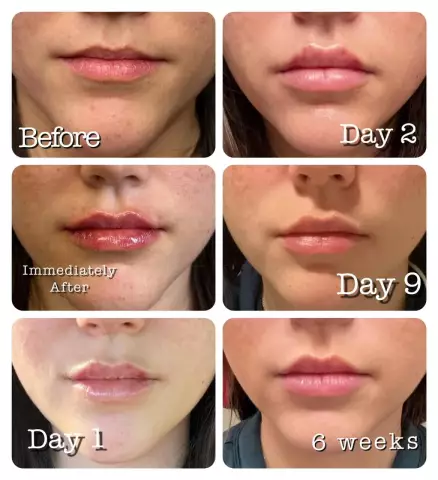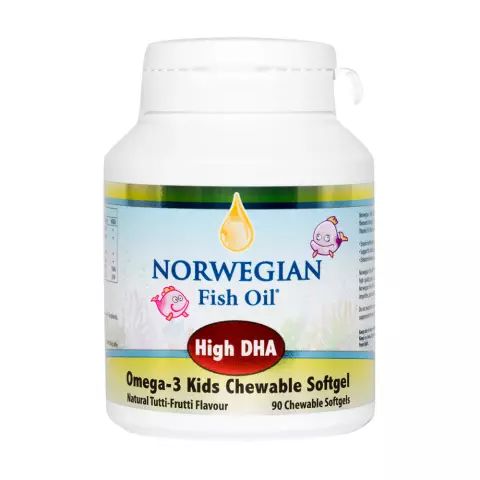- Author Rachel Wainwright [email protected].
- Public 2023-12-15 07:39.
- Last modified 2025-11-02 20:14.
Dietary supplements: real harm and questionable benefits
Dietary supplements (BAA) over the past decades have entered our lives so thoroughly that it seems that it is already impossible to find a person who has not tried them at least once. But most of our compatriots have a vague idea of what dietary supplements are made of, how they work and how they differ from real medicines. Let's try to understand these issues, and at the same time understand how necessary such supplements are.

Source: depositphotos.com
The history of the appearance of dietary supplements, their composition and purpose
Already in ancient times, people knew that extracts from certain plants, powders from minerals and dried parts of animal bodies have a positive effect on the body (relieve fatigue, improve mood and vitality, eliminate symptoms of diseases, etc.). The first drugs were mixtures, sometimes quite complex, of extracts and extracts of this kind. It was they who were used for therapy before the advent of synthetic drugs. At the end of the 19th century, the world again "turned its face" to drugs of natural origin, mainly with the aim of general improvement, prolongation of life and getting rid of the consequences of existence in a developed industrial society (obesity, depression, neuroses, etc.).
The authors of the first dietary supplements were enthusiasts who turned to the experience of oriental healers and tested the effect of the selected substances on themselves. They created drugs of a general strengthening nature and distributed among their loved ones (at first even for nothing). A real boom happened in the second half of the twentieth century, when supplements were invented, supposedly helping to lose weight, diverging according to the "network marketing" system. At the end of the 90s, the craze for dietary supplements reached Russia and became widespread, which was greatly facilitated by aggressive advertising and a rather high level of mistrust in official medicine. Today, our pharmacies and stores offer hundreds of supplements, most of which, at a very high price, can be not only useless, but also harmful to health.
Dietary supplements consist of extracts of plant, animal or mineral origin and are designed to optimize the amount of vitamins, microelements and some other components that are needed for normal life. According to experts, with a balanced diet, a person should consume more than 600 different substances daily. It is clear that many simply cannot afford a diet that meets these requirements. And it makes sense to get some of the components in a concentrated form from drugs that are properly made, safe and affordable. Ideally, dietary supplements should play this role.
Why consuming dietary supplements can be dangerous
If the composition of a dietary supplement fully corresponds to that stated on the package, the drug is produced in compliance with all technological and sanitary and hygienic requirements, the rules for its storage and sale have not been violated, and the need for these particular substances for a particular person has been precisely established, the dietary supplement will undoubtedly bring real benefits. The trouble is that the fulfillment of all these conditions is the exception rather than the rule. In reality, dietary supplements do more harm than good. The main reasons are as follows:
- State requirements for dietary supplements are much milder than for pharmaceuticals. Dietary supplements do not have to undergo clinical trials, their quality and composition are simply declared by the manufacturer. This means that the company that produces the additive makes a statement about what the product consists of and how it works, and the compliance of these statements with reality remains on its conscience;
- in the programs of medical educational institutions, training courses on the specifics of the use of dietary supplements are officially absent. It turns out that not only consumers of supplements, but also doctors do not have sufficient knowledge about the effect of such products on the human body, its compatibility with drugs, side effects and other important nuances;
- biologically active additives are very often sold by organizations and individuals who do not have any right to such activities;
- advertising of dietary supplements in most cases does not correspond to their real qualities, it is unscrupulous and incorrect;
- a significant part of the supplements offered on the market are made from low-quality raw materials or contain components hazardous to health.

Source: depositphotos.com
When a person is going to improve his health with the help of dietary supplements, it can be difficult to dissuade him. As a rule, such a decision is accompanied by disappointment in the official medical treatment, fear of surgery, and a generally difficult state of mind. However, you can show some foresight even in such a situation. Before purchasing a very expensive drug, it must be borne in mind that biologically active additives can never and under no circumstances be used as drugs. Anyone who claims otherwise is breaking the law (even if it is a medical practitioner). In addition, reliable information on the effect of most dietary supplements on the human body simply does not exist. Therefore, the recommendations of people who have allegedly experienced a "miracle" remedy are not trustworthy: what "helped" them,could hurt you. In any case, it is better for the same money to find a conscientious doctor and follow his recommendations than to add the effect of an unknown drug to your ailment.
Be healthy, and if you get sick - treat correctly!
YouTube video related to the article:

Maria Kulkes Medical journalist About the author
Education: First Moscow State Medical University named after I. M. Sechenov, specialty "General Medicine".
Found a mistake in the text? Select it and press Ctrl + Enter.






